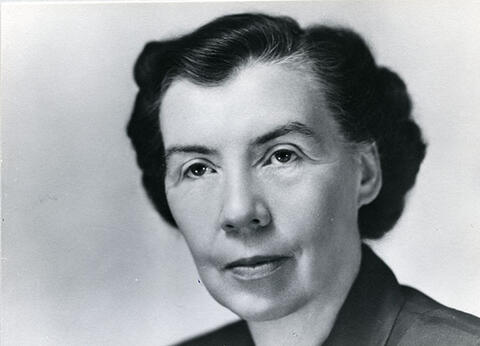
Zona do título e menção de responsabilidade
Título próprio
Dr. Hilda Neatby - Portrait
Designação geral do material
- Material gráfico
Título paralelo
Outra informação do título
Título e menções de responsabilidade
Notas ao título
Nível de descrição
Item
Entidade detentora
Código de referência
Zona de edição
Menção de edição
Menção de responsabilidade da edição
Zona de detalhes específicos de materiais
Menção da escala (cartográfica)
Menção da projecção (cartográfica)
Menção das coordenadas (cartográfico)
Menção da escala (arquitectura)
Autoridade emissora e denominação (filatélica)
Zona de datas de criação
Data(s)
-
[194-?] (Produção)
Zona de descrição física
Descrição física
1 photograph : b&w ; 16.5 x 11.5 cm
Zona dos editores das publicações
Título próprio do recurso continuado
Títulos paralelos das publicações do editor
Outra informação do título das publicações do editor
Menção de responsabilidade relativa ao editor do recurso contínuo
Numeração das publicações do editor
Nota sobre as publicações do editor
Zona da descrição do arquivo
Nome do produtor
História custodial
Âmbito e conteúdo
Head and shoulders image of Dr. Hilda Neatby, Department of History, 1936-1971.
Bio/Historical Note: Dr. Hilda Marion Neatby was born in Sutton, Surrey, England, on 19 February 1904. Her family moved to Saskatchewan in 1906 and she received most of her primary and secondary education in rural schools in the Earl Grey district. With her family's move to Saskatoon in 1918, she completed her high school education at Nutana Collegiate Institute. Dr. Neatby earned a BA with high honours in History and French in 1924, and added an MA in 1928, both from the University of Saskatchewan. After studying for a year at the Sorbonne in Paris on a provincial government scholarship, she returned to Saskatoon to attend Normal School and complete an MA degree at the same time. Dr. Neatby continued her studies at the University of Minnesota, graduating with a PhD in 1934. Dr. Neatby began her academic career with the University of Saskatchewan in 1934 as a substitute French teacher at the Regina campus. After joining the History Department at the U of S in Saskatoon in 1946, Dr. Neatby was invited to be a member of the Royal Commission on National Development in the Arts, Letters and Sciences. She had a decisive influence on the committee and its final report. Dr. Neatby’s work on the commission led to a job as Vincent Massey's speechwriter during his tenure as Governor General (1952-1957). Dr. Neatby retired from the U of S in 1969 after serving as head of the History Department since 1958, the first woman to head a university History department in Canada. Dr. Neatby was also the first woman president of the Canadian Historical Association (1962-1963), Canada's premier historical society. She was the first editor of "Saskatchewan History" magazine. Dr. Neatby was one of the first Companions of the Order of Canada (1967). She was also recognized as Woman of The Century and presented with a centennial bronze medal from the National Council of Jewish Women for outstanding service to Canada. Dr. Neatby received an honourary Doctor of Laws degree from the U of S in 1971. Dr. Neatby died in Saskatoon on 14 May 1975. She is remembered as one of the country's top historians and the author of "So Little For the Mind" (1953), a book that delivered a stinging indictment of the public school system in Canada. In 2000 Canada Post issued a stamp in her honour. In 2005 the former Place Riel Theatre at the U of S was renamed the Neatby-Timlin Theatre, in honour of her and former U of S economics professor Mabel Timlin. Neatby Crescent and Place in Parkridge in Saskatoon also honour Dr. Neatby.
Zona das notas
Condição física
Fonte imediata de aquisição
Organização
Idioma do material
Script do material
Localização de originais
Disponibilidade de outros formatos
Restrições de acesso
Termos que regulam o uso, reprodução e publicação
Photographer: Paul Horsdal
Copyright holder: Unknown
Other terms: Responsibility regarding questions of copyright that may arise in the use of any images is assumed by the researcher.

